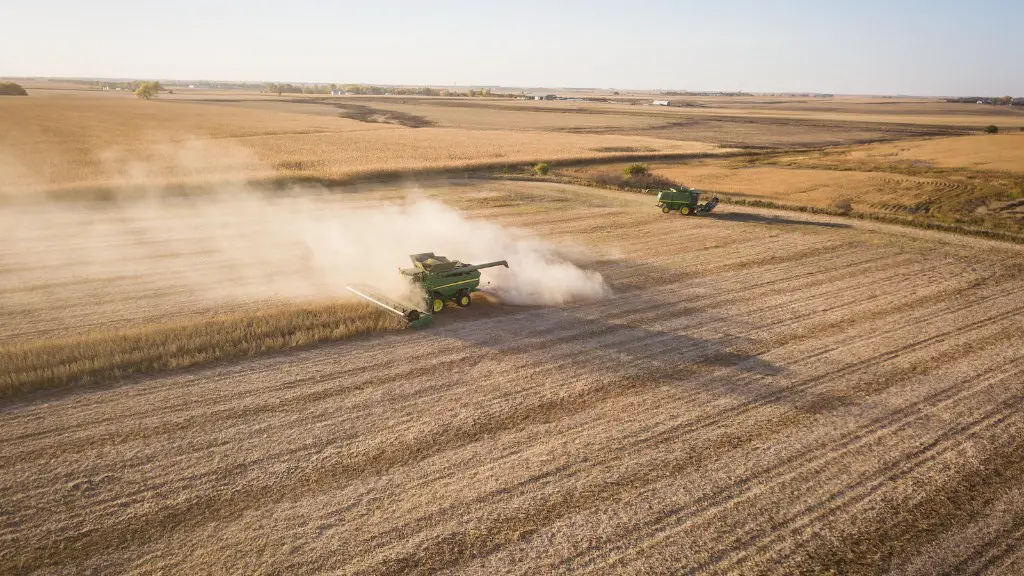Agriculturalists eager to obtain land from the government often approach the process unaware of what is expected of them. Knowing prior to initiation of the process considerably increases the chances of a successful acquisition. An understanding of the application process, documents required and the protocol adhered to by governing bodies is paramount in ensuring compliance and securing land.
The initial step to acquiring land from the government is to understand the state laws relevant to the transaction. These will vary depending on the government and the location. It is vital to be aware of taxation laws and agricultural regulations governing land transfer. To gain an appreciation of these legalities, a professional legal firm should be consulted. Furthermore, agricultural training can be of immense help in comprehend of the local laws.
The next step to obtaining land is to gather information about the potential real estate in question. Consulting a qualified surveyor is essential for a complete appraisal of the property. Such an appraisal helps in understanding the land’s boundaries and its topographical features. It also ascertains the suitability of the suggested land for agricultural use and provides full information regarding zoning requirements.
Submitting a proposal to the government is then necessary. This proposal needs to adhere to the aforementioned regulations. In this document, the applicant will state their intention for the land, along with the required funds and any other relevant information needed to substantiate the proposal. Following this, the potential applicant is likely to be invited for an interview by the governing body to ensure the legality of such a transaction.
Once a confirmation is received from the government, the chosen individual will initiate the necessary paperwork. This includes completing forms regarding administration of the land, outlining the finances of the transaction and the assignment of rights to the new owner. Part of this process includes a title search of the land – ensuring that no liens or encumbrances arise from this transfer. With the appropriate final paperwork approved, the new owner should now become the rightful custodian of the acquired land.
This process can be arduous. Hence, it is imperative that an agreement is reached between the governing bodies and the potential landowner prior to purchase. Clarifying this agreement energetically can manifest a positive outcome. Also, no transaction should be finalized until paper evidence of the title transfer has been presented. This document will give the new owner the assurance that the land acquisition was legal.
Once the title is transferred, the next step is to become familiar with the terms of service stipulated by the government. Understanding these terms is vital and any violations of these rules will result in heavy fines and other punitive sanctions. Adhering to regulations can be demanding, and thus it is recommended to enlist the aid of agricultural professionals to ensure compliance.
Government Fees and Taxes
Land acquisition from governments often involve fees and taxes. Without a clear understanding of the payment system in place, it can be very difficult to successfully conclude the transaction. Governments will often levy transfer fees, land tax and other regulations that can substantially drive up the cost of the land. Additionally, many governments will incorporate an additional surcharge for late payments. So, it is in the applicant’s best interests to understand and keep within the payment terms.
It is usually beneficial to attain the services of a qualified accountant when dealing with the tax liabilities associated with landownership. This can help to prevent violations of taxation laws. Furthermore, a proficient accountant will be able to identify any possible deductions that can be made. The accountant should also be able to anticipate any taxation returns due to the owner, as well as provide guidance in the filing of any relevant forms.
The government will often keep detailed and accurate records with regards to land transfers. It is strongly advisable to cooperate fully with the government’s requests, as failure to respond to communication from either the government or their agents can result in legal action being taken. It is also important to inform the government of any changes of address in a timely manner. This can help to ensure efficient communication between all parties involved.
Maintenance of the Land
Now that the land acquisition process has been concluded, the land will need to be maintained for its continued use. Looking after the land and its environs is especially important, since the government can revoke land-use rights if the land is abused. This is mainly applicable with regards to livestock, crop rotation and the usage of fertilizers and other chemicals upon the land.
It is also critical to ensure that the land boundaries are never altered in any way. Adjustments made to the boundaries can lead to legal action, as it may conflict with the terms of service. Professional surveyors can be used to periodically assess the land’s topography and make any required changes. This ensures that the land adheres to the rules set down by the government.
Annual taxes must also be paid once the land has been obtained. Failure to do so can result in heavy fines, or even the potential revocation of the land use rights. Furthermore, it is essential for the owner to ensure that all relevant paperwork is up to date and includes the most accurate information possible.
Liability insurance should also be sought once the land has been acquired. This form of insurance will protect the owner from any instances involving product damage or injury to persons. Furthermore, the owner should be aware of any legal restrictions governing the land in order to minimize any potential disputes.
In the event that the land will be used for crops, it is recommended to consult agricultural experts in order to improve crop yield. This can involve learning rotational farming techniques and using the correct soil amendments to promote productivity. With the guidance of agriculturalists, the land soil can be properly utilized, allowing farmers to obtain the highest possible yield.
Conclusion of the Land Acquisition Process
The land acquisition process from a government institution is an arduous process. Without an understanding of the protocols and regulations governing such a transaction, it can become an extremely tedious and frustrating experience. Hence, it is paramount to fully understand the legalities and requirements prior to initiation of the process.
The paperwork involved in the land acquisition process must be filed promptly and with complete accuracy. Furthermore, the terms of service must be strictly adhered to; this is especially relevant with regards to the boundaries of the land and maintenance of the property. Additionally, all payments must be concluded on time to avoid any fines or penalties.
The newly acquired land needs to be maintained to sustain its use. This includes utilizing the correct fertilizers and crop rotation techniques to promote soil productivity as well as correct use of livestock. Once the land is obtained, its ownership must be insured, to protect the new owner from any potential legal disputes. With adherance to these rules, the land acquisition process should be successfully completed.
Long-term Maintenance of the Land Acquired
The successful land acquisition process must be followed by ongoing management procedures to ensure the land is well kept and remains productive. This should involve properly contained land strips for both crops and livestock, soil maintenance to ensure healthy yields and documented records for a complete overview of all activities.
Crop rotation and livestock management is important to incorporate in the agricultural practices. This should involve regularly scheduled adjustments to the land, ensuring reforms are made and healthy land management principles are adhered to.
Pest control measures should also be employed, as this can help to protect the agricultural yield of the land, as well as its soil. Furthermore, protective chemicals should be used and monitored at regular intervals to avoid overuse and potential damage to the land and any living organisms inhabiting the area.
It is highly recommended to keep accurate financial records to help maintain the land and enable the owner to understand the financial implications of their decisions. This includes filing taxes and fees in a timely manner and understanding the applicable charges applicable to any interactions made with the government.
Legal knowledge is also necessary to ensure continued ownership of the land. The owner must constantly be aware of the laws governing the land and ensure no violations take place. Also, knowledge of any pertinent court rulings and rulings from any necessary governing bodies is needed to ensure the legality of any decision made.
Lastly, the land should be well maintained to ensure it remains productive. This should involve remapping of land boundaries, replanting of vacated areas and a perpetual understanding of the land’s capacity. With proper long-term maintenance and careful management, the land should remain productive and viable for further use.





